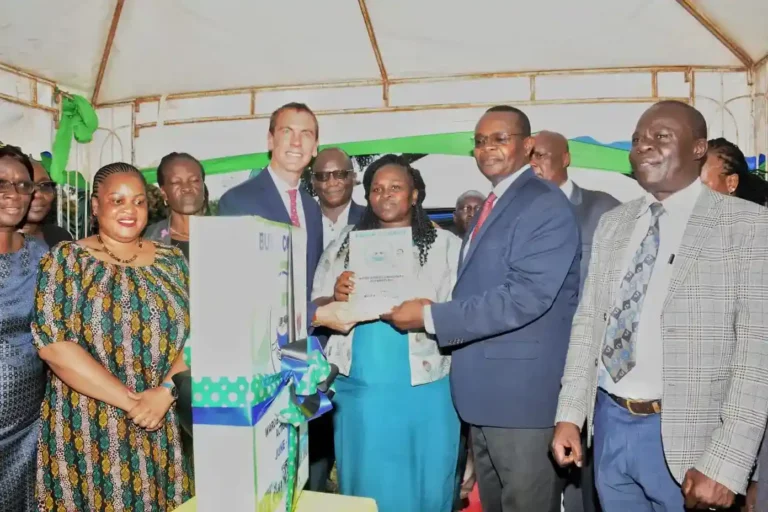The British High Commission has announced a Ksh 640 million project aimed at empowering marginalized communities in Busia and Mandera Counties.
The “Strengthening Digital Communities” initiative will provide women, youth, senior citizens, and persons with disabilities (PWDs) with enhanced access to digital skills and technology.
The initiative aims to equip individuals with essential skills for the digital workforce, including mentorship, financial literacy, and entrepreneurship opportunities.
It will also promote digital safety, cyber hygiene, and the benefits of digital inclusion through targeted campaigns.
Speaking at the launch, the British Deputy High Commissioner, Dr. Ed Barnett, said:
“Putting young people, women and persons with disabilities at the heart of development is transformative. The UK is committed to working with Kenya to ensure these underserved groups within the population enhance their digital skills and their access to vital services like e-citizen, secure jobs and participate meaningfully in this digital world.
“We are delighted to partner with KICTANet on this important project in line with our commitment to supporting digital inclusion globally. We can only go far, together, and I believe by working together, we can ensure that digital opportunities are accessible to everyone.”
“This partnership is not just an investment in technology but in the very future of the people of Busia, especially the underserved,” Busia Governor Paul Otuoma said.
Partnerships and Collaboration
The project is a partnership between the British High Commission and KICTANet. They will work with various institutions including the National Council of Persons with Disabilities, Kenya Society for the Blind (KSB), and Technology For Growth (Tech4G) amongst others to ensure digital inclusivity.
KICTANet CEO Dr Grace Githaiga said empowering marginalised communities with digital skills and resources will help break down barriers and create a more inclusive and equitable society.
“This project is about more than just technology, it is about empowering communities and creating opportunities for those who have been left behind by the digital revolution,” she said.
Digital Access Programme (DAP)
The DAP is a UK government initiative dedicated to promoting affordable, inclusive, and secure digital access for underserved populations. Operating since 2019, it has been extended to 2025.
DAP has contributed to improving government websites, such as e-citizen, providing over 14,000 digital services.
In addition, the program has conducted comprehensive assessments to enhance website accessibility for individuals with disabilities.




